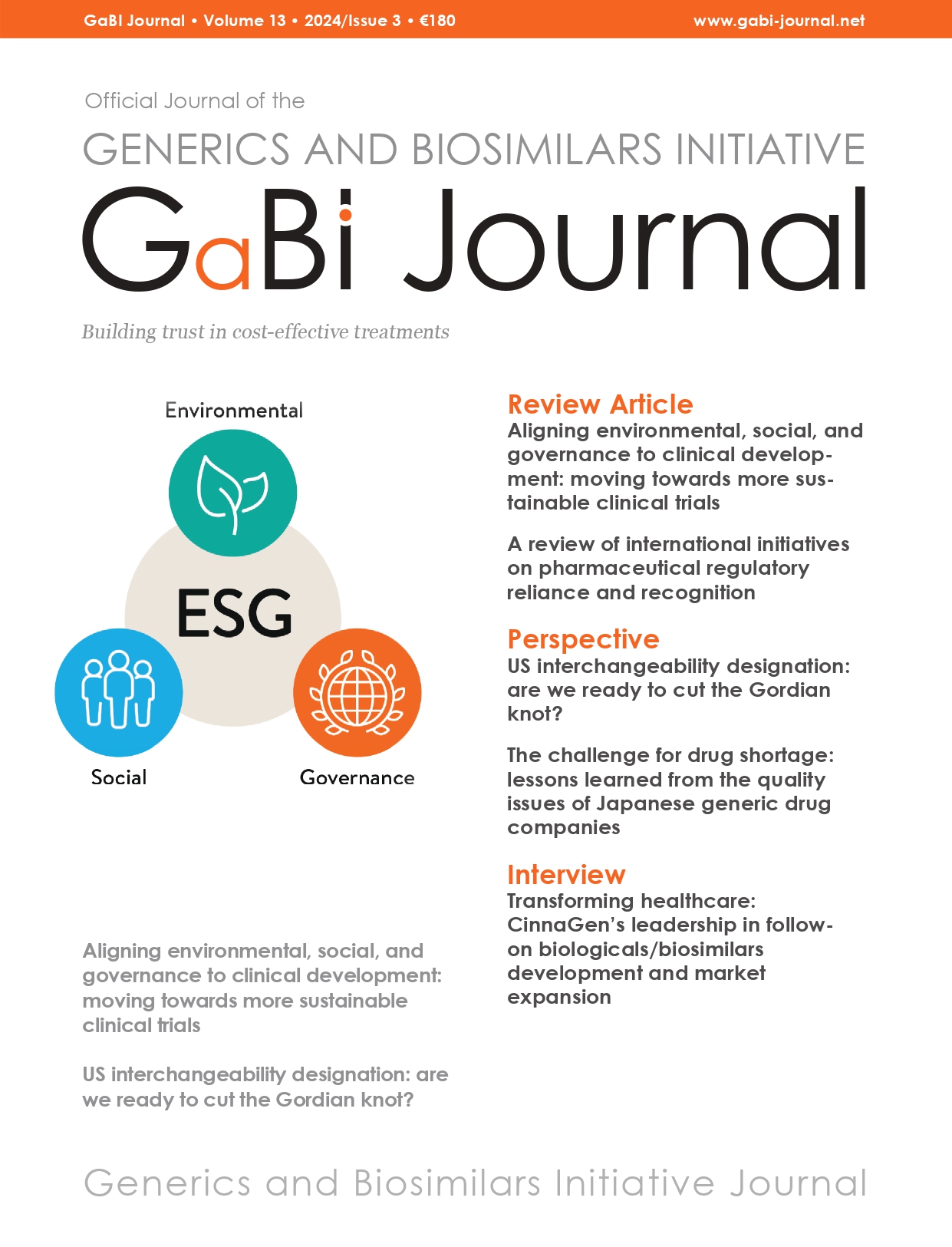Biosimilarity of anticancer monoclonal antibodies in the clinic
Published on 2013/12/12
Generics and Biosimilars Initiative Journal (GaBI Journal). 2014;3(1):39.
The European Medicines Agency recommends the use of pharmacodynamics (PD) markers when establishing biosimilarity, but no such biomarkers are known for the clinical efficacy of bevacizumab (Avastin). For this reason, confirmatory clinical efficacy studies are essential, write Hans Ebbers et al. of Utrecht University in The Netherlands [1].
The biosimilar monoclonal antibodies (mAb) guideline released by the European Union makes the case for commonly applied clinical endpoints, such as overall survival (OS) and progression-free survival (PFS), but these are unlikely to be sensitive enough to establish comparability with bevacizumab.
No endpoint in sight
Ebbers et al. calculated sample sizes needed for trials in indications that are licensed in the EU to demonstrate non-inferiority. European guidelines for the evaluation of cancer treatments insist that the choice of reference regimen is selected from the best available options. The following analyses were based on trials that used guideline-approved regimens.
The authors calculated the clinical trial sample sizes needed to demonstrate non-inferiority over the originator mAb (bevacizumab) using PFS as an endpoint. A sample size of 544 patients would be needed for metastatic renal cell carcinoma, while 3,454 patients would be needed for advanced metastatic colorectal cancer. With OS as an endpoint, a sample size of 2,502 would be required to demonstrate non-inferiority for non-small cell lung cancer, and considerably more patients would be required for other authorized indications.
The best way to establish non-inferiority is to perform comparisons in patients who would benefit most from the mAb being studied; patients with a poor prognosis. But several such trials have found that the improvement in PFS was not supported by similar improvements in OS.
Added to this, other commonly used endpoints in oncology such as response evaluation criteria in solid tumours (RECIST), are not ideal because bevacizumab treatment does not result in tumour shrinkage. Ebbers et al. conclude that accepted clinical endpoints might not be suitable to establish biosimilarity.
Alternative endpoints
Bevacizumab is also used successfully to treat age-related macular degeneration (AMD), so perhaps its efficacy could be established by assessing its efficacy in AMD. Establishing comparability in AMD would be relatively quick and require fewer patients.
For this to succeed, bevacizumab’s mechanism of action needs to be the same in AMD and cancer. Also, AMD bevacizumab is administered intravitreally at doses that are only a fraction of those used in oncology, making it difficult to extrapolate the safety profile to cancer.
Alternatively, hypertension, a common side effect of bevacizumab, has been linked to improved clinical outcome. Using hypertension as a surrogate endpoint would reduce patient numbers required, but the association of hypertension and clinical outcome is not well understood.
Think again
This case study suggests that bevacizumab and related mAbs might force authorities to reconsider the objective of the comparability exercise. Perhaps the authorisation of biosimilar mAbs should rely on post-authorisation observation and long-term follow up of clinical trials, suggests Dr Ebbers.
Editor’s comment
The statistical sample size realities of comparative trials discussed in the Ebbers et al. paper need not preclude testing. Such trials could perhaps be done in both European and resource-poor but highly populated countries. When such studies are too expensive to be reasonable perhaps approval of follow-on products could be dependent on conduct of expanded post-marketing Phase IV trials with a more extensive baseline coupled with collection of both toxicity AND efficacy data. Comparison of efficacy and toxicity outcomes both concurrent and retrospective would be scientifically less robust than traditional randomized designs but much less expensive and perhaps preferable to merely relaxing requirements for approval.
Competing interests: None.
Provenance and peer review: Article abstracted based on published scientific or research papers recommended by members of the Editorial Board; internally peer reviewed.
Bea Perks, PhD, GaBI Journal Editor
Reference
1. Ebbers HC, van Meer PJ, Moors EH, Mantel-Teeuwisse AK, Leufkens HG, Schellekens H. Measures of biosimilarity in monoclonal antibodies in oncology: the case of bevacizumab. Drug Discov Today. 2013 Sep;18(17-18):872-9.
Disclosure of Conflict of Interest Statement is available upon request.
Copyright © 2014 Pro Pharma Communications International
Permission granted to reproduce for personal and non-commercial use only. All other reproduction, copy or reprinting of all or part of any ‘Content’ found on this website is strictly prohibited without the prior consent of the publisher. Contact the publisher to obtain permission before redistributing.


